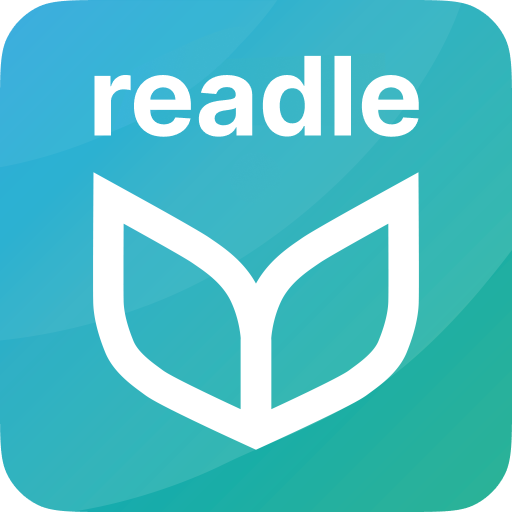
Babbel vs. Rosetta Stone – which one will you use to learn the German language?
To learn German, you need to make it right from the beginning (since it’s no secret that Germans tend to be a little overcorrect with everything). And to find the best way to learn German, you need to choose the right language learning app. And just subscribing to the most popular one is not often enough.
Let us help you out here and make your choice easier. Below, you will find a comparison for the two most popular apps with German courses: Babbel and Rosetta Stone. Check it out, see which one suits your needs in terms of German pronunciation, basic vocabulary, and grammar, or speaking German with confidence – and learn German easily and efficiently.
Babbel German Course
How Babbel works
This app is designed to help beginning and intermediate German learners to engage in pursuing conversations with German-speaking people. The content focuses mainly on daily language, which is highly beneficial when learning a new language since you will most likely use new vocabulary in real-world contexts. It’s not so much about German grammar and correctness but rather about developing practical listening and speaking skills.
Whether making an order in a restaurant, booking a bus ticket, or even simply talking to people in the German language in different situations, you need to make yourself clear and understand your interlocutor correctly. Babbel teaches all the basics you need to know about daily conversations.
Moreover, Bubble is good not only for learning German – it offers courses for multiple languages, including French, Italian, Russian, and many more.
How To Use It
All Babbel lessons begin with one-word vocabulary and then quickly advance to short phrases and entire sentences. Once you’ve memorized the phrases, you can use them in a real-life conversation — one that lets you apply what you’ve just learned in an actual dialogue (like the one you’d have with a native speaker).
Babbel’s lesson content is created by native German speakers – so you’ll hear the natural pronunciation in the language you’re learning. The lessons aim to strengthen all of your senses in the four elements of language learning: reading, writing, listening and speaking. It’s a combination of matching, fill-in-the-blank, and speaking exercises, mixed with cultural and grammar tips, so you can also master sentence structure, usage of the articles, and many other essential skills.
Lessons take about 10 to 15 minutes to complete, and with both desktop and mobile versions of the app, you can take your lessons wherever you go and download them for offline use to accommodate your schedule and flexibility.

Rosetta Stone for Learning German
How Rosetta Stone Works
If you ask people about the oldest and most known language learning app, most of them will definitely recommend Rosetta Stone, which has been on the market since years ago. However, is it really that good?
One of the main distinguishing elements of this award-winning software is the total immersion method, which teaches you a new language only by using the language you’re learning. That means native English speakers will find no English at all in their learning journey – and if you want to learn German, you will have to speak German right away.

While this can be effective for helping German learners remember information, this can also be problematic for beginners, as a user interface in a foreign language can be super uncomfortable. Moreover, even though Rosetta Stone uses different language learning tools, the lessons on this platform can be a bit more monotonous and repetitive than those in other apps.
How to Use It
Rosetta Stone features exercises that help language learners strengthen their understanding of the foundations of the German language.
The lessons are very structured and utilize professional drills and repetition — a combination of matching, writing, and speaking. The app is teaching you the basics, slowly walking through the learning process, which can make it good for those who have never learned a new language before.
Rosetta Stone can be beneficial for users who want to learn a new language without having to translate it back into their native tongue in their heads. But because there are no tips or grammar explanations in your native language, you can miss out on important contextual information and some key concepts important for learning German.
Other Rosetta Stone Features
Rosetta Stone’s instant download mobile model enables users to learn across multiple devices from everywhere. Thanks to it, you can, for example, wait in line and learn the German language at the same time.
In addition to its core lessons, users can also explore the Phrasebook module, which features stories that are written and narrated by native speakers. Users of similar learning proficiencies can play games together, compete against each other, or otherwise play by themselves and build their language skills.
Apart from that, Rosetta Stone’s Live Tutoring offers a chance for language learners to practice with up to three other learners and a native speaker in a small group. Most of these sessions must be paid for additionally on top, but if you decide to give them a try, you might boost your process of learning German.
Similarities And Differences

Similarities
- Both platforms are subscription-based, so you pay for complete access to the app;
- Short, 10- to 20-minute lessons on your own schedule;
- Both apps allow you to sync offline wherever you are with multiple devices;
- Both start out by teaching the basics and build from there;
- Focusing on all elements of language learning: reading, writing, listening and speaking;
- Both apps use speech recognition technology which can check your pronunciation in real life.
Differences
- Rosetta Stone courses are more time-intensive. The apps drill you on the same vocabulary and expressions, repeating lessons, which can be highly beneficial when learning languages;
- Babbel German lessons tend to cover more material at a bit of a faster pace;
- Babbel, unlike Rosetta Stone, has a designated Review Manager feature to bring back information you’ve learned without slowing down your in-lesson learning;
- Babbel has pop-up culture and grammar tips in your native language that help you contextualize what you’re learning;
- Babbel is interested in long and lengthy dialogues while Rosetta Stone focuses on individual sentences;
- Babbel provides explanations and English translations, whereas Rosetta Stone uses target language only;
- Babbel German lessons offer useful and practical explanations as well as translations of the words and sentences you learn;
- Rosetta Stone’s immersion method does neither offer explanations nor tips in your native language;
- Babbel has 14 different languages while Rosetta has 30 languages;
- The sound quality for Babbel is way less as compared to Rosetta Stone;
- Rosetta Stone is far more expensive than Babbel;
- Both the apps are not sufficient to achieve fluency in the German language; however, they can improve your speaking skills and help you get the hand of the German grammar.
Pricing: How Much Does It Cost?

Both apps offer an introductory lesson as a free trial. After the trial Babbel and Rosetta Stone require the purchase of a subscription before you can get full access. ( Psst, by the way, Babbel also offers some tutorials and lessons totally free at every level)
Babbel subscription prices range between $6 and $13 a month, depending on the length of the subscription purchased. Babbel has a 2-day money-back guarantee, so you can cancel the subscription if you don’t like it.
Rosetta Stone can cost anywhere from about $12 per month of access to about $300 for a lifetime subscription. It also has a 30-day money-back guarantee.
Let’s Revise
Rosetta Stone and Babbel are two different apps that can aid your German learning process – but which one suits you? That depends on your goals.
Some people learn the German language to communicate with native speakers or visit Germany in the near future; others want to learn it for business; others require more substantial knowledge so that they can speak German fluently. For each of these objectives, you will find different lessons.
If your goal is to speak in German in a short time, then start learning with Babbel – it offers many real-world conversations so that you can learn new vocabulary and practice some basic speaking skills.
On the other hand, Rosetta Stone will help you create the basic foundation for learning German by teaching you important things like broader grammar or using German in different aspects of your life.
In the end, while both those apps will be enough for the beginning German learners, they might not fulfill your goals if you know the language on a higher level. In that case, you might want to combine them with other methods and resources like online tutoring platforms.
Let’s Learn German!
Just because you are trying hard to learn German doesn’t mean that you have to spend hours memorizing words or doing boring exercises. Add a fun element to your German lessons and consider using the Readle – Learn German App.
With this software, you can read and listen to news and stories in German based on your current level. On top of that, you can click on each and every word in the text and see its proper translation, always based on the context. And the best thing, you’ll get free content every week so that you don’t get bored and read something new and exciting regularly.
